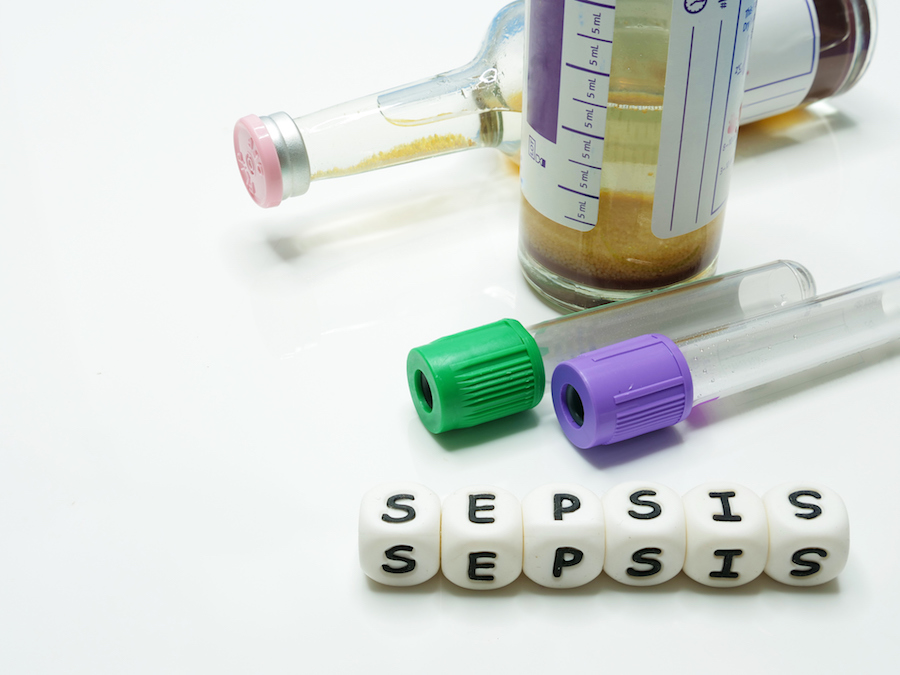Everything you need to know about Sepsis
We explain the causes, symptoms and treatments
When you start to feel the first stirrings of a sore throat, runny nose and achy joints, you probably just think you’ve picked up a cold from the office.
But in some cases, flu-like symptoms can actually be a sign of something much more serious, and recognising the signs of sepsis blood poisoning could potentially save someone’s life.
Sepsis deaths are on the rise; new data collected by leading specialist Prof Sir Brian Jarman, director of the Dr Foster research unit at Imperial College, London, has revealed that deaths recorded in England’s hospitals have risen by more than a third in two years.
So what exactly is it and how do you contract it?
What is sepsis?
Sepsis occurs when the immune system overreacts to an infection or injury.
The immune system is designed to fight infections, but sometimes it can go into overdrive and mistakenly attack the body’s organs and tissues.
Sepsis develops when the chemicals that the immune system releases into the bloodstream to fight a localised infection cause inflammation throughout the entire body instead.
If it’s not treated quickly, sepsis can eventually lead to multiple organ failure and death.
It’s often referred to as blood poisoning or septicaemia, which is bacteria in the bloodstream, but sepsis can affect multiple organs, even without blood poisoning.
What are the symptoms?
As mentioned earlier, the initial symptoms of sepsis can often be confused as the flu. Symptoms can appear differently in different people, but the UK Sepsis Trust says that adults may display any of the following:
– Slurred speech or confusion
– Extreme shivering or muscle pain
– Passing no urine (in a day)
– Severe breathlessness
– It feels like you’re going to die
– Skin mottled or discoloured
Parents, meanwhile, should look out for the following in children:
– Very fast breathing
– Has a fit or convulsion
– Skin looks mottled, bluish, or pale
– A rash that does not fade when you press it
– Lethargic or difficult to wake
– Feels abnormally cold to touch
A child under five may have sepsis if he or she:
– Is not feeding
– Is vomiting repeatedly
– Has not passed urine for 12 hours
#bbcbreakfast My uncle had #sepsis via water infection, my mum via a chest infection & I had it twice via menigitis the 1st time & a wound the 2nd time. Basically if you feel so ill you feel like you are dying – its probably sepsis
— MisHelenEous | Gifts for Home & Hound (@misheleneous) August 3, 2018
Who is at risk?
Sepsis cases are on the rise in hospitals, as you’re more likely to develop it if you’ve recently had surgery, you’ve had a urinary catheter fitted or you have to stay in hospital for a long time.
The NHS says that everybody is potentially at risk of developing sepsis from minor infections.
You may also be more vulnerable if you have a medical condition that weakens your immune system, are receiving treatment that weakens the immune system, are very young or very old, have just had surgery, or have wounds or injuries as a result of an accident.
When should you seek help?
You should try to see your GP immediately if you’ve have recently had an infection or injury and you’re displaying the symptoms of sepsis.
Septic shock – where organ damage leads to dangerously low blood pressure – is a medical emergency. Call 999 immediately and ask for an ambulance.
Since Melissa’s son William died in December 2014 of sepsis, she has been campaigning tirelessly with @UKSepsisTrust to raise awareness and stop any more preventable deaths. Understand more about sepsis and what you should be looking out for – https://t.co/lh7LudmrGv pic.twitter.com/NtI3XRuQ3t
— PACEYchildcare (@PACEYchildcare) August 2, 2018
What is the treatment?
The treatment for sepsis varies, depending on the severity of the case and the cause of the initial infection.
If it’s diagnosed early enough and has not damaged vital organs, it’s possible to treat the infection at home with antibiotics, and make a full recovery.
If the condition is more severe, you may need to to be admitted to an intensive care unit (ICU), which can support any affected body functions, such as breathing or blood circulation, while the medical staff focus on treating the infection.
#BBCBreakfast just watched your interview on Sepsis. Had Sepsis late last year and, luckily was in the right place at the right time. 14 days in hospital, large doses of oral & IV antibiotics. So thankful for the dedication, and care from staff @ Broadgreen Hospital, Liverpool.
— Kathleen McKevitt (@SKathsKath) August 3, 2018
The NHS say: “Because of problems with vital organs, people with severe sepsis are likely to be very ill. Up to four in every 10 people with the condition will die.
“Septic shock is even more serious, with an estimated six in every 10 cases proving fatal.
“However, sepsis is treatable if it is identified and treated quickly, and in most cases leads to full recovery with no lasting problems.”
The Press Association
Latest posts by The Press Association (see all)
- What causes an earwax blockage and how it can affect your hearing? - March 14, 2025
- 10 things you didn’t know about hoverflies - March 12, 2025
- When to replace old pillows – and how to dispose of them - March 11, 2025
- 5 things that not drinking enough water is doing to your health - March 11, 2025
- Here is the full playlist for the King’s Music Room show - March 10, 2025




















